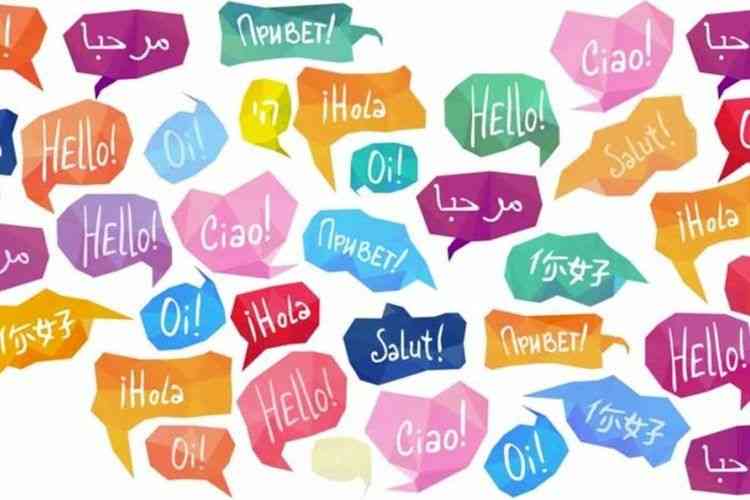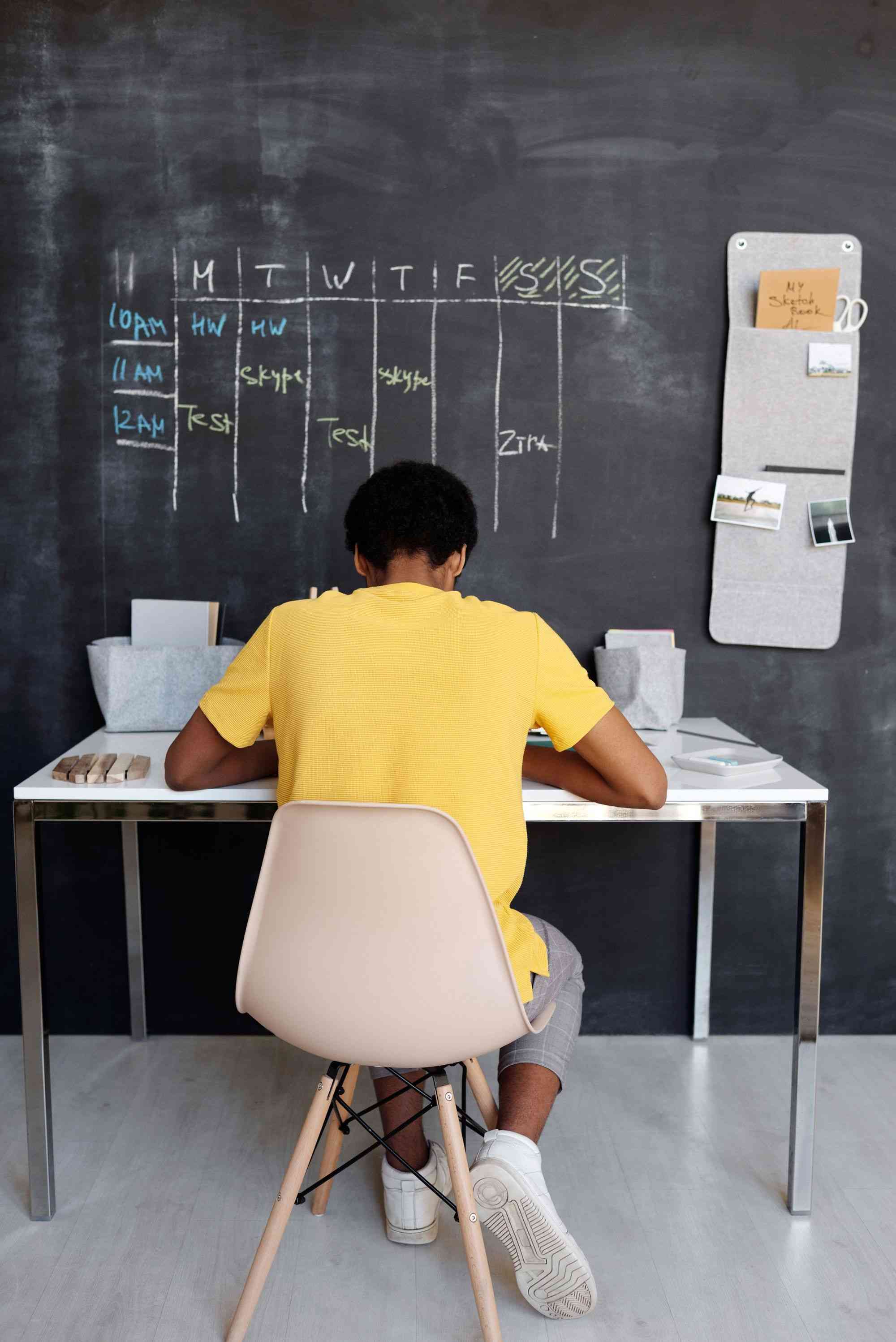Self learning - self development is a skill that must be acquired to keep pace with the developments of the times.
Self-learning has become a form of the modern learning process, this does not mean that it has replaced traditional learning of course, but it nevertheless strengthened it with truly impressive results, as self-learning has proven its effectiveness as being comfortable and fast, especially with the advent of the Internet. It became possible to learn anything through a simple search on Google, or by watching a video on YouTube, or simply by reading the instructions for use. Thus self-learning has become the modern form of the learning process that equips individuals with various skills related to their jobs, specialties or lives in a way. In general however, it can also be a difficult process for even the smartest students, given the discipline and commitment it needs.
you may also like

Advantages of the self-learning process. If you are still confused about whether self-learning is the best and most appropriate method for you, here are some of the most important advantages of this type of learning:
- Developing problem-solving skills Self-learning helps you to identify problems and immediately initiate the search for a suitable solution for them on your own. This may be by asking your colleagues or by searching on the Internet or any other way. In any case, these obstacles and challenges that you face during the learning process do not eliminate your motivation to complete what you have to do, but rather give you new opportunities to learn something new in proportion to your speed and time. Not only that, self-learning also enables you to acquire the skills to actively search for solutions instead of waiting for them to come to you on a plate and with time, you will become more able to adapt to the changes around you.
- A process free from pressure and tension Self-learning focuses on the learning process more than on the learning outcomes, in addition to the fact that the learner does not face any pressures during learning, as he can learn what he wants at the time he wants and take the period of time that suits him in that the final goal is Achieving satisfactory results regardless of the period or method used in learning, and for this very reason, we find that self-learners are more able to assimilate information than people who learn in a traditional way, because they choose what they learn by themselves and determine the time period according to their own schedule.
- Acquiring other skills while learning During the self-learning process, learners can acquire other skills of great importance, such as time management, self-evaluation, or goal-setting skills, which are skills that can be applied in various other areas of life and the reason behind the development of these skills among the learners They need to acquire these skills during the learning process, unlike what happens in traditional learning, which may not require such skills.
- Giving a special meaning to the learning process Self-learning emerges from the personal desire to acquire new knowledge and is driven by the need to find new information on a topic and then use this information to achieve a specific goal. Achieving this goal, not only that, as this process pushes the learner to dive and delve deeper into the research, and as a result the learning process acquires a special meaning, learning is no longer just for the sake of learning, but rather a fun and entertaining process that has meaning for the learner, leading him to reach commendable and satisfactory results.
- Stimulating curiosity A large part of education comes to satisfy a certain amount of curiosity. Learning occurs automatically when there is a feeling of curiosity about something. It is a rare thing that occurs in the traditional learning process that depends on external forces (represented by teachers and parents) instead of relying on the student’s curiosity as a driving force for him. As for the self-learning process, curiosity is the main driver of the process, which makes it an entertaining and enjoyable experience, It is an adventure that enables you to successfully expand your horizons and abilities and learn many new things.
- Flexibility in choosing the method of learning, video lessons on YouTube, internet conferences, books or live lectures... etc. all of them are different means of learning, and you can choose what suits you and this is what the self-learning process allows you, so the option is available for you to use whatever methods you want A suitable learning for you, rather than the process being limited to only one method available to everyone without taking into account the personal differences between the learners, as is the case in traditional learning.

How do I develop my self-learning skills and enjoy the learning process? Although self-learning appears to be an easy and enjoyable process, it often requires specific skills that may not be addressed during the traditional process of learning, so how can you then acquire these skills to achieve better outputs from self-learning? Here are some ways to do this:
- Be curious: According to a study conducted at the University of California, researchers confirmed that curiosity makes our brains more receptive to learning and when you are curious, the learning process will become more enjoyable and useful. Also, Harvard Business Magazine published an article explaining that employees who are curious about their work are often more creative By 30% of others, and less affected by stress and pressures, they also have better communication skills than others, and even ignite the flame of curiosity within you to learn, start by asking yourself questions like this: Why should I gain more knowledge about this topic? Why is this information useful to me? How can I use this knowledge to create change around me? The more you answer questions like these, the more your understanding of the learning process increases, and the more your curiosity increases, so your desire to know more increases. Without you feeling, learning will transform from a duty to a positive habit that is an integral part of your daily routine.
- Set clear goals that you want to reach, as is the case with the teacher who develops a teaching plan aimed at helping students acquire specific skills by the end of the lesson, self-learning needs to set clear goals as well. When you define your goals from behind the learning process, you will become more capable Not only this, but setting clear learning objectives will allow you to develop a specific methodology for learning that will enable you to achieve the results you aspire to, to assess your progress and see if you have acquired the knowledge that you were seeking.
- Determine the learning sources that suit you intelligently when it comes to self-learning, as the available resources are countless, unlike the traditional learning process, which is limited to one medium in most cases. And due to the vastness and abundance of resources available in the self-learning process, it becomes difficult to choose the correct and reliable source, so be sure to follow the following tips when choosing the appropriate learning source Be skeptical about everything, and make sure of the source of each information before adopting it, especially if you are searching through The Internet, as this network contains a huge amount of information, and not all of it is correct. Use learners' search engines like Google Scholar or World Cat that give you access to authoritative academic articles and books instead of misleading and vague information. Try e-learning platforms that often offer many online courses that have been prepared in the most prestigious international universities, ensuring their quality and reliability.
- Determine the way in which you want to evaluate yourself. Contrary to the traditional learning process that includes tests and exams to assess the progress made by students, we find that self-learning lacks this aspect. Without assessing the progress made, the learning process will not have any real value until you overcome this gap. Start by setting specific points that you want to cover during learning, determine the time you want to spend on that, and then set yourself metrics that indicate your progress that may allow you some Learning resources are tools for evaluating your achievement, such as tests and worksheets, so don't hesitate to answer them to get an idea of your performance and progress.
- Do something from what you learned If you learn something, and you do not use what you learned in your daily life, you will likely remove this information from your mind after some time, so always make sure that you create something from what you have learned. This may be a model of a machine you studied about, or a video An illustration, a mental map, or even a summary of what you have learned the important thing is not to be satisfied with obtaining the information and then throwing it into your memory without making use of it in your life.
In the end, which means of learning do you prefer? Self-learning or traditional learning? What knowledge would you like to learn more about on your own?
Editor's Choice:

Sources:
[1] https://medium.com/wondr-blog/self-learning-why-its-essential-for-us-in-the-21st-century-9e9729abc4b8
[2] https: //www.brightermonday.co.ke/blog/self-learning/



